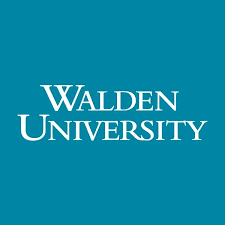
Policies
Contents
- Who Can Submit?
- Authors Guidelines
- Correction and Retraction Policies
- Peer Review Process
- Formatting Requirements
- Ethics Statement
- Rights for Authors and ScholarWorks
- Attribution and Usage Policies
- Personal-use Exceptions
- Self-Archiving Policy
- Privacy Statement
- General Terms and Conditions of Use
- Research and best practices in digital teaching and learning
- Results from international collaborations regarding teaching and learning
- How tertiary education contributes to training in 21st-century, global workplace skills
- Assessment of student learning
- Continuous quality improvement of academic programs and support services
- The role of tertiary education in promoting civic engagement and global citizenship
- Tertiary education in developing countries
- The role of institutional, local, national, and international policy on tertiary education
- Editors will email selected reviewers the title and abstract of the submission as well as an invitation to log into the HLRC website to complete the review.
- Reviewers enter the website to agree to do the review, download submissions, submit their comments, and select a recommendation.
- Alternatively, reviewers can decline or decline and suggest other possible reviewers.
- If the peer-review reports come back recommending either to accept or to revise the manuscript, an academic editor will conduct an editorial review in order to validate the data sources, fact-check the references, and make a final recommendation to the editor in chief or guest editor.
- Plagarism:Using someone else’s words or ideas without giving proper credit or accurately citing the source.
- Self-Plagarism:Using your own, already published materials without properly documenting and putting in context the prior publication or simply copying and pasting entire portions of your previous works and passing them as new knowledge.
- Bilingual Plagiarism:Copying and translating someone else’s work written in one language, without giving any credit, and passing that work as your own in another language.
- Multiple submissions:Submitting the same article for publication to two or more journals/publishers at the same time.
- Duplicate publications:Submitting research that has already been published, including merely changing the title of the manuscript and rehashing or reusing already published data.
- Data fabrication and falsification:Forging research data or omitting/altering the obtained results in a manner that no longer reflects the accuracy of the research record.
- Deception:Misrepresenting your academic work, record, or credentials, including taking credit for work or research in which you did not contribute or take part.
- Copyright infringement:Using materials protected under national and international copyright laws without permission or the proper license.
- Carelessness and negligence:Hurried and rushed manuscripts that lack adequate revisions and verification from the author(s) and, as a result, contain improperly cited materials or errors in the data reported.
- Storage and back-up of the article on the author's computer(s) and digital media (e.g., diskettes, back-up servers, Zip disks, etc.), provided that the article stored on these computers and media is not readily accessible by persons other than the author;
- Posting of the article on the author's website, provided that the website is non-commercial;
- Posting of the article on the Internet as part of a non-commercial, open-access institutional repository or other non-commercial, open-access publication site affiliated with the author's place of employment; and
- Posting of the article on a non-commercial course website for a course being taught by the author at the university or college employing the author.
- Pre-refereeing and pre-publication: To ensure consistency in the information available to researchers and to safeguard the blind peer-review process, authors are asked to abstain from self-archiving or posting online the submitted manuscript before the review process is complete.
- Post-refereeing and post-publication: Authors are free to self-archive and distribute the peer-reviewed and editorially reviewed version of their work. As a fully open-access journal, there is no embargo period. Authors are encouraged to archive the published PDF version, which includes a suggested citation with all pertinent information, including a digital object identifier (DOI). If the author decides to self-archive or distribute the work in a format other than the published PDF, the author must include the assigned DOI and acknowledge that the work was first published in HLRC.
Who Can Submit?
Anyone may submit an original manuscript to be considered for publication in Higher Learning Research Communications provided he or she owns the copyright to the work being submitted or is authorized by the copyright owner or owners to submit the article. Authors are the initial owners of the copyrights to their works (an exception in the non-academic world to this stipulation might exist if the authors have, as a condition of employment, agreed to transfer the copyright to their employer).
Authors Guidelines
The HLRC editors will return to the author any submission that does not contain all required information or adhere to submission criteria. While the work may be submitted once updated, authors can avoid such a delay in submission by adhering to the Author Guidelines and instructions to ensure a double-blind review process. (See "Ensuring a Blind Review" instructions below.) *Special note for authors whose first language is not English: You must have your manuscript professionally edited by someone skilled in writing in academic English for scientific publication. This includes copyediting as well as translation of meaning. Significant translation issues can interfere with the ability of reviewers to provide a thorough review. Difficult to understand manuscripts will be flagged for return at Desk Review.
Focus and Scope
HLRC is an open-access journal with an international focus. The aim is to disseminate high-quality research and teaching best practices in tertiary education across cultures and disciplines. HLRC connects the ways research and best practices contribute to the public good and impact the communities that educators serve. Peer-reviewed and published articles have encompassed the following topics (submissions are not limited to this list):
Correction and Retraction Policies
Corrections to Published Work: Authors must inform the journal’s editors (see the Contact Us section of the website) of any errors they notice (or have been informed of) in their published article. Corrections are made at the journal’s discretion. A correction notice will be published online and linked to the article if necessary. The Editor may consider correcting the actual article (PDF) online. The editors will add a correction notice, either as a footnote or at the end of the article, identifying what content has been changed since the article’s initial publication and publish an erratum. Retractions:Journal editors consider retractions when evidence is found of plagiarism (to include self-plagiarism and bilingual plagiarism), multiple submissions, duplicate publications, data fabrication and falsification, deception, and/or copyright infringement. The editors may publish an expression-of-concern notice if and while an article is under investigation. If a retraction is necessary, the editors will include a retraction notice with the published version of the article. The PDF will be replaced with a version containing the original text but watermarked “Retracted.” In rare cases, legal concerns may require the editors to remove the original content. In such cases the editors will leave the metadata (title and authors) and replace the text with a note stating that the article has been removed for legal reasons. A retraction notice will also be published online.
Peer Review Process
Each manuscript will be submitted for a preliminary review in which editors ensure the manuscript complies with the submission guidelines as well as the focus and scope of the journal and does not have any identifying information to ensure a blind peer-review process. All manuscripts will be submitted to a plagiarism detection service before peer review.
After the initial editorial review, each manuscript will undergo a double-blind peer-review process.
Academic editors will actively search for the sources cited in the manuscript to ensure context and accuracy, even after a plagiarism checker clears the paper for peer review. Unfortunately, the editors have encountered cases where authors copy materials in one language and try to pass them as their scholarship in another. As such, if at any point during the editorial and review process, plagiarism, duplicitous or redundant publishing, academic dishonesty, or research misconduct is found, the submission will be summarily rejected, and the author may be precluded from submitting manuscripts for 1 year. For more information, please see the HLRC Ethics Statement.
In the case of manuscripts that are returned recommending revisions required or resubmit for review, the author will have no more than 30 days to revise and resubmit the manuscript. If the author does not resubmit after that period, the manuscript may be declined, and the author will have to submit the manuscript for a new review.
Formatting Requirements
Manuscripts should adhere to the guidelines of the current edition of the Publication Manual of the American Psychological Association (APA). Manuscripts submitted must be in the format prescribed by the HLRC manuscript template. All manuscripts should be submitted as a Microsoft™ .doc or .rtf file.
Walden journals do not charge processing fees, so manuscripts mus be formatted as closely as possible to published articles. The attached template provides essential information on how to format manuscripts. It contains information regarding fonts and type size for various manuscript sections, creating correct tables and figures, and examples for various common reference types. The template reflects the organization for an empirical study; however, the structure can be adapted to fit other kinds of manuscripts, such as essays and book reviews. Ensuring manuscripts are correctly formatted, taking the time to cross-check references and citations, and searching for DOI where available will help reduce processing time in the end and make it easier for peers to review manuscripts.
Ethics Statement
The HLRC editorial team is committed to ensuring the quality of manuscripts published in the journal. As such, the editorial team expects all parties involved in the publication process, including authors, reviewers, editors, sponsoring institutions, and the publisher, to adhere to international standards for ethics in academic publishing. For manuscripts involving research with human subjects, a statement in the Methods section indicating that appropriate ethics review was granted is required.
Authors
Regarding the last point, if a manuscript is rejected because of plagiarism or errors in the data reported, but the author(s) was simply in a rush to finish the manuscript and honestly did not intend to plagiarize or misrepresent the data, the occurrence is still considered a form of academic misconduct.
Finally, since the HLRC editorial team employs a double-blind peer-review process, authors must ensure there is no personal information in the manuscript that may lead reviewers to discover the authors' identities. That includes eliminating author names from the text and removing author identification metadata from Word documents and other text processing applications.
Reviewers
Under the Ethical Guidelines for Peer Reviewers, published by the Committee on Publication Ethics (COPE), reviewers must be objective and diligent in their review, and have the necessary expertise in order to assess the manuscript (Hames & Committee on Publication Ethics Council, 2013). Furthermore, access to unpublished research and data demands maintaining and ensuring the confidentiality of the information in the manuscript to safeguard both the review process and the intellectual property rights of the author(s).
Reviewers have a duty to promptly respond to review requests and notify one of the editors if circumstances change after accepting a request and the review won’t be completed on time. There is also an obligation to decline a review request if the reviewer feels he or she lacks the necessary expertise in a subject matter or if there is a conflict of interest (or even the appearance of one). If, at any time during the review process, there is a question or doubt regarding the accuracy of the research record or there is suspicion of academic misconduct, the reviewer must promptly bring this to the editors' attention.
Since the HLRC editorial team employs a double-blind peer-review process, reviewers must refrain from trying to identify the author(s) or contacting him or her directly.
Editors
According to theResponsible Research Publication: International Standards for Editors, journal editors are responsible for everything they include in a publication and, as such, must adopt policies and have guidelines in place in order to encourage maximum transparency and complete, honest reporting (Kleinert & Wager, 2011). Furthermore, editors are accountable for the truthfulness of the publication, so they should issue corrections and retractions when needed and pursue [e] suspected or alleged research and publication misconduct (2011). Editors are the gatekeepers of the journal's academic integrity and, consequently, must take the appropriate measures to ensure an objective review process and to publish accurate information.
References
Hames, I. & Committee on Publication Ethics Council (2013). COPE ethical guidelines for peer reviewers (Version 1). Retrieved from https://publicationethics.org/resources/guidelines
Wager, E. & Kleinert, S. (2011). Responsible research publication: International standards for authors. A position statement developed at the 2nd World Conference on Research Integrity, Singapore, July 22-24, 2010. In T. Mayer & N. Steneck (Eds.), Promoting research integrity in a global environment (pp. 309-316). Singapore: Imperial College Press/World Scientific Publishing.
Rights for Authors and ScholarWorks
As further described in the Submission Agreement, in being considered for publication, the authors assign to ScholarWorks all copyright to the article, subject to the expansive personal-use exceptions described below.
Attribution and Usage Policies
Reproducing, posting, transmitting, or otherwise distributing or using the article or any material therein—in any medium as permitted by a personal-use exception or by written agreement from ScholarWorks—requires credit to ScholarWorksas copyright holder(e.g., Walden University Publishing © 2011).
Personal-use Exceptions
The following uses are always permitted by the author and do not require further permission from ScholarWorks provided the author does not alter the format or content of the articles, including the copyright notification:
Authors seeking an exception, or who have questions about use, should contact the contact the editors.
Self-Archiving Policy
Privacy Statement
The names and e-mail addresses entered in the HLRC site will be used exclusively for the stated purposes of the journal and will not be made available for any other purpose or to any other party.
General Terms and Conditions of Use
Users of the ScholarWorks website and/or software agree not to misuse the ScholarWorks service or software in any way.
The failure of ScholarWorks to exercise or enforce any right or provision in the policies or the Submission Agreement does not constitute a waiver of such right or provision. If any term of the Submission Agreement or these policies is found to be invalid, the parties nevertheless agree that the court should endeavor to give effect to the parties' intentions as reflected in the provision and the other provisions of the Submission Agreement and these policies remain in full force and effect. These policies and the Submission Agreement constitute the entire agreement between Walden University Publishing and the Author(s) regarding the submission of the Article.
The views and statements expressed in this journal do not necessarily reflect the views of Walden University, LLC, any of its affiliates, or any other person involved in the production and distribution thereof (collectively “Walden”). Walden does not warrant the accuracy, reliability, currency or completeness of those views or statements and does not accept any legal liability whatsoever arising from any reliance on the views, statements and subject matter of the journal.
Updated Jan. 2020






